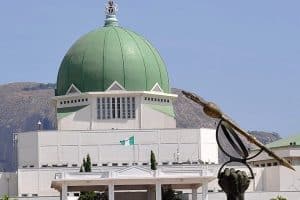
Nigerian Senators have continued to express dissatisfaction with the implementation of the 2024 Budget.
During a session with the Minister of Finance and Coordinating Minister of the Economy, Wale Edun, and Minister of Budget and Planning, Atiku Abubakar Bagudu, on Thursday, members of the Senate Committee on Appropriations sought clarification on the utilisation of funds saved from the removal of the fuel subsidy and the performance of Government-Owned Enterprises.
Discussions from the Joint Committees on Appropriations of both Chambers of the National Assembly earlier revealed concerns about the imbalance between Recurrent and Capital Expenditures in the 2024 Budget.
The committee chair, Senator Solomon Olamilekan Adeola, pressed the ministers for answers on capital expenditure performance and the application of proceeds from subsidy removal.
Senator Abdul Ningi, representing Bauchi Central, questioned the Finance Minister on specific figures regarding fuel subsidy proceeds and debt servicing in the 2024 Budget.
He stated: “I have listened to the submissions of the Ministers, and I must say my concerns remain unaddressed. As an Appropriation Committee, we are tasked with overseeing budgetary matters, and many of us here are chairpersons of committees that will carry this presentation back to our respective teams.
“In your opening remarks, Mr Chairman, you referenced budget performance, but we are yet to hear specific figures or percentages regarding capital expenditure and recurrent expenditure. What is the current budget performance? These details are critical for our deliberations and for informing the larger public.”
Senator Ningi also pressed for transparency on how subsidy savings have been utilised and sought detailed projections for debt servicing in 2025.
Additionally, he questioned the effectiveness of extending the 2024 budget performance to June 2025, seeking assurances on its potential economic benefits.
Senator Adetokunbo Abiru of Lagos East acknowledged improvements in revenue collection in the third quarter of 2024 but criticised the lack of transparency surrounding the revenues of Government-Owned Enterprises. He specifically demanded clarity on remittances from the Nigerian Liquefied Natural Gas (NLNG).
In response to the intense scrutiny, Wale Edun requested an executive session, leading to journalists being excused from the Senate Committee room.
Before the closed-door discussions, Senator Tahir Monguno, representing Borno North and Senate Chief Whip, attributed delays in budget implementation to a centralised payment system introduced by the current administration.
He argued that this system, managed by the Office of the Accountant General, had replaced the previous decentralised approach, causing bureaucratic delays and inefficiencies.
“There is a school of thought suggesting that one of the major obstacles to the successful implementation of the capital component of the budget is the introduction of the ‘bottom-top approach’ by the current administration. This policy has centralised payment and processing in the Office of the Accountant General, replacing the previous decentralised system where ministries, departments, and agencies handled these tasks independently,” he remarked.
Minority Leader Senator Abba Moro also voiced concerns about the Executive arm’s delays in budget submission, warning that it threatened the consistency of the January-December budget cycle.
The post Fuel Subsidy: After Intense Grilling, Tinubu’s Minister Demands Closed-door Session With Lawmakers appeared first on Naija News.


